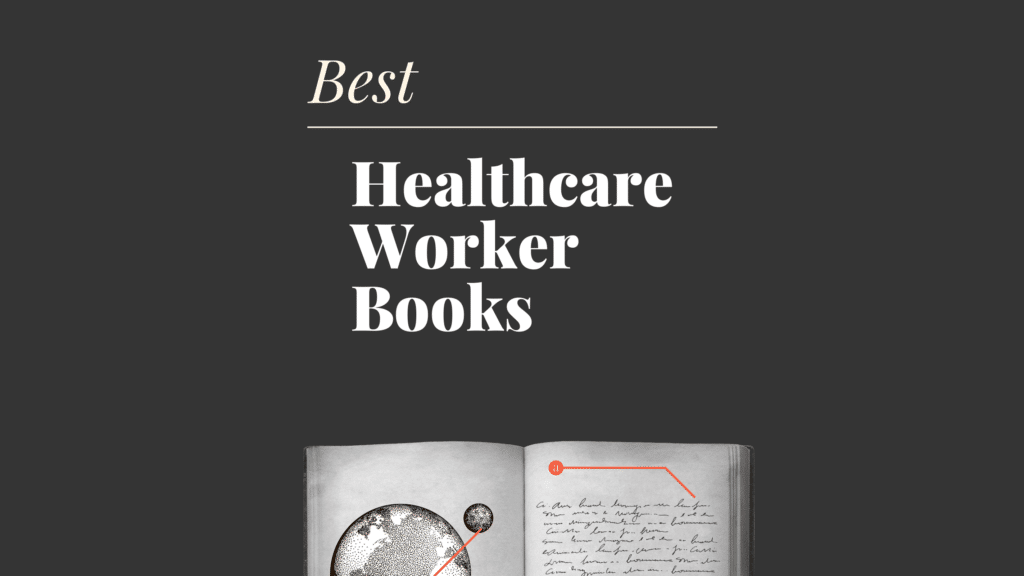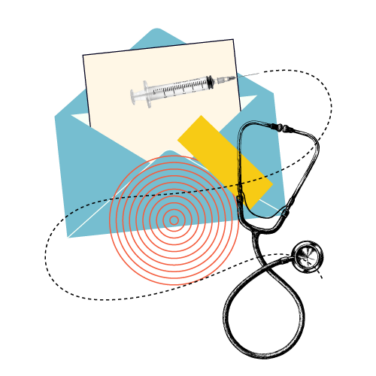For healthcare workers, selecting the right books is crucial for navigating the complexities of patient care and healthcare management effectively. This curated list, aimed at a broad audience from medical students to healthcare reform advocates, focuses on addressing challenges, leadership lessons, and true health stories. These recommended reads are essential for anyone eager to deepen their healthcare knowledge and make a significant impact in the field.
24 Best Books for Healthcare Workers
I've read and chosen these books for healthcare workers that address their needs and challenges in the field.
- Being Mortal Illness, Medicine, and What Matters in the End by Atul Gawande
- The Emperor of All Maladies by Siddhartha Mukherjee
- The Immortal Life of Henrietta Lacks by Rebecca Skloot
- The Healing of America by T.R. Reid
- The Checklist Manifesto: How to Get Things Right by Atul Gawande
- Language Of Kindness by Christie Watson
- When Breath Becomes Air by Paul Kalanithi, with a foreword by Abraham Verghese
- Complications: A Surgeon's Notes on an Imperfect Science by Atul Gawande
- The Spirit Catches You and You Fall Down by Anne Fadiman
- Mountains Beyond Mountains by Tracy Kidder
- How Doctors Think by Jerome Groopman
- The Digital Doctor by Robert Wachter
- Better: A Surgeon's Notes on Performance by Atul Gawande
- The House of God by Samuel Shem, with an introduction by John Updike
- In Shock: My Journey from Death to Recovery and the Redemptive Power of Hope by Rana Awdish
- God's Hotel: A Doctor, a Hospital, and a Pilgrimage to the Heart of Medicine by Victoria Sweet
- The Anatomy of Hope by Jerome Groopman
- Cutting for Stone by Abraham Verghese
- Medical Apartheid by Harriet A. Washington
- The Man Who Mistook His Wife for a Hat by Oliver Sacks
- Critical Care by Theresa Brown
- Direct Red: A Surgeon’s View of Her Life-or-Death Profession by Gabriel Weston
- Why We Revolt by Victor Montori
- Preventable: How a Pandemic Changed the World & How to Stop the Next One by Devi Sridhar
Overviews Of The 24 Best Books for Healthcare Workers
Here’s a quick summary of each book, what you’ll learn, and why you should read it, plus a quote I like from the book. I added the author’s LinkedIn and other places to connect with them online.
1. Being Mortal: Illness, Medicine, and What Matters in the End by Atul Gawande

Summary:
In Being Mortal, surgeon Atul Gawande addresses the complexities of end-of-life care, emphasizing the importance of understanding patient wishes and priorities, and the potential pitfalls of over-medicalization at life's end.
What You'll Learn:
This book will offer insights into the complexities of end-of-life care, the importance of understanding patient wishes, and the potential pitfalls of modern medicine when dealing with terminal conditions.
Why You Should Read It:
Being Mortal offers a profound understanding of the challenges faced by patients, families, and physicians when dealing with terminal illnesses and the shortcomings of the medical field in this realm.
Quote From The Book:
"Being mortal is about the struggle to cope with the constraints of our biology, with the limits set by genes and cells and flesh and bone."
About The Author:
Atul Gawande is a respected surgeon, writer, and public health leader. Explore more about his works on his Amazon portfolio. Follow him on Twitter, or visit his personal website.
2. The Emperor of All Maladies by Siddhartha Mukherjee
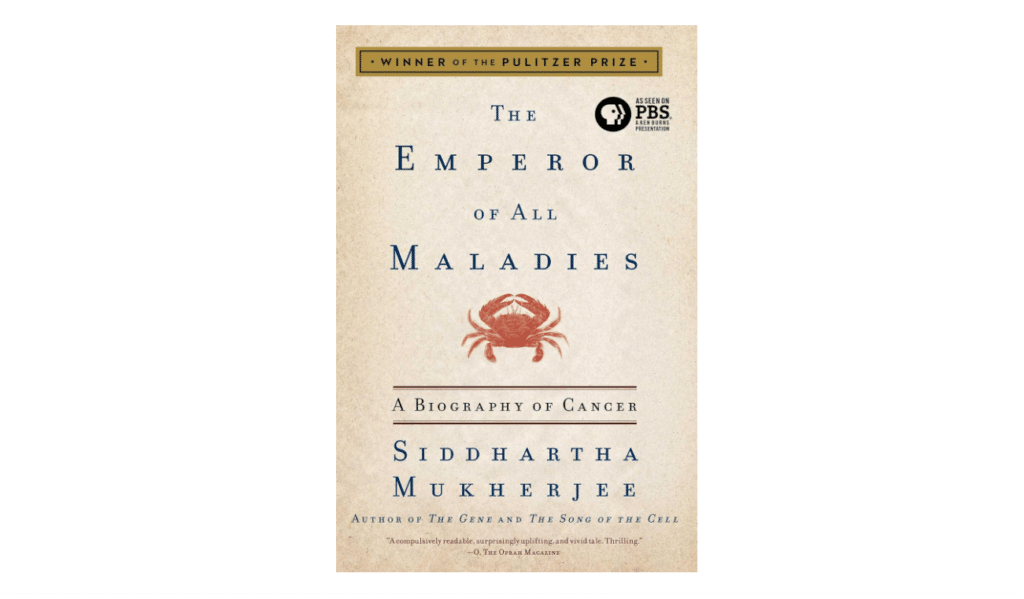
Summary:
In this Pulitzer Prize-winning book, Mukherjee offers an elegant inquiry into the science, history, and future of cancer, combining both medical history and deeply personal narratives.
What You'll Learn:
You'll delve into a comprehensive history of cancer and its treatments, get to hear personal stories of those affected by the disease and understand the ongoing battle humanity wages against this ailment.
Why You Should Read It:
It's a chance to gain a comprehensive understanding of cancer, from its earliest recorded days to the latest advancements in oncology.
Quote From The Book:
"Time, in fact, is the unstated subject of most cancer trials... Everyone who has even sat in a cancer clinic knows the peculiar dilation of time that accompanies the illness."
About The Author:
Siddhartha Mukherjee is a renowned cancer physician, researcher, and author. Follow his insights on Twitter, or explore his personal website.
3. The Immortal Life of Henrietta Lacks by Rebecca Skloot
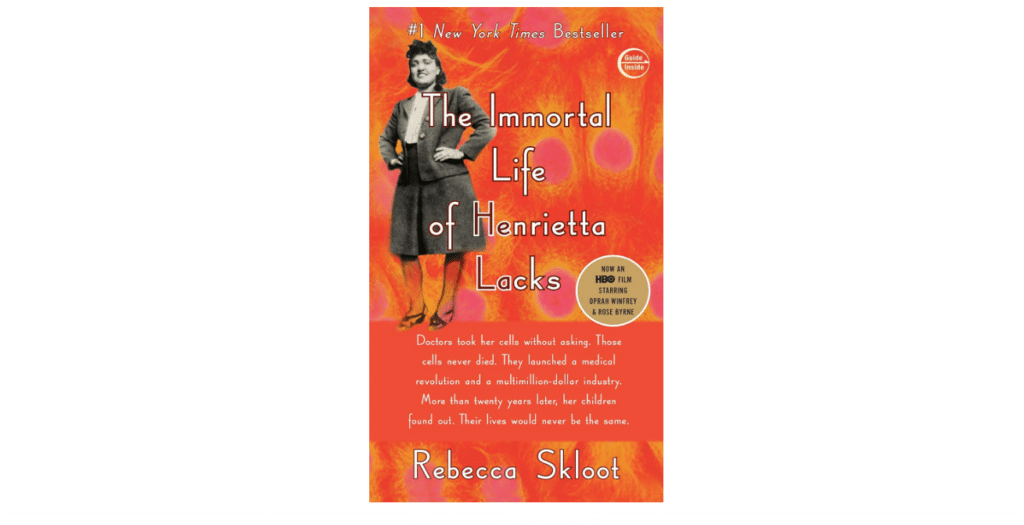
Summary:
Skloot unveils the story of Henrietta Lacks, whose cells, taken without her knowledge in 1951, have revolutionized medical science. The book also dives into the dark history of experimentation on African Americans, the birth of bioethics, and the legal battles over human tissue ownership.
What You'll Learn:
The book shines a light on the history and impact of the HeLa cells, the ethical considerations of medical research, and the Lacks family's journey to discover their matriarch's unwitting contribution to science.
Why You Should Read It:
This is a compelling exploration of race, ethics, and science, revealing the story behind the cells that have irrevocably changed the landscape of modern medicine.
Quote From The Book:
"We must not see any person as an abstraction. Instead, we must see in every person a universe with its own secrets, with its own treasures, with its own sources of anguish, and with some measure of triumph."
About The Author:
Rebecca Skloot is an acclaimed science writer. Connect with her on LinkedIn, stay updated through Twitter, or browse her personal website.
4. The Healing of America by T.R. Reid
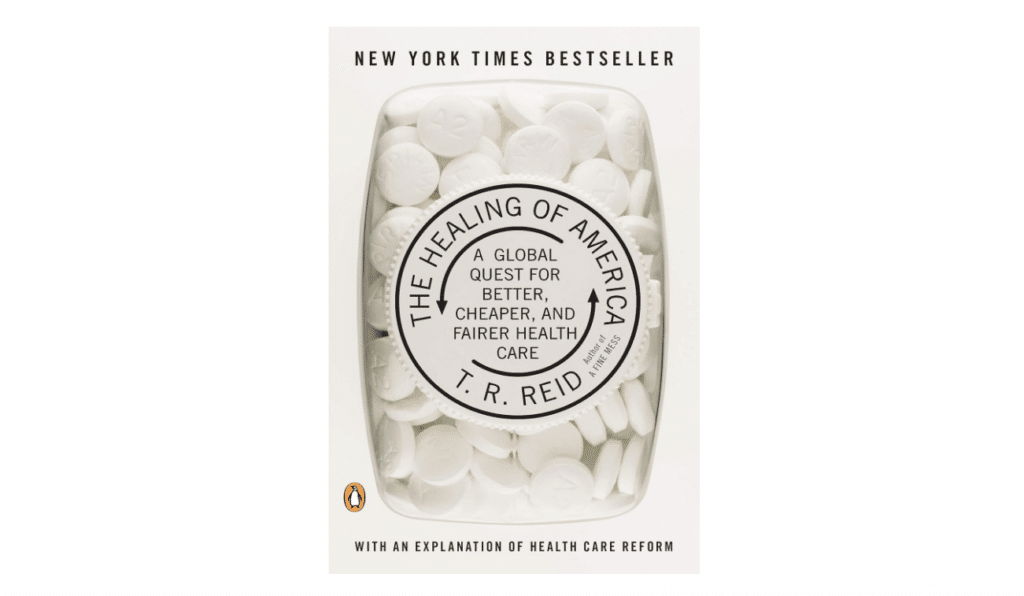
Summary:
The Healing of America explores diverse global healthcare systems to uncover what might help the United States reform its healthcare. Reid contrasts American healthcare with systems from other nations to dissect the principles underpinning each approach and to spur more informed healthcare debates.
What You'll Learn:
Insights into various international healthcare systems, their structures, operations, and the comparative benefits and shortcomings of each.
Why You Should Read It:
To understand the different approaches to healthcare around the world, and what the United States can learn from these to improve its own healthcare system.
Quote From The Book:
"Every industrialized nation has a lower rate of child mortality than we do. Every industrialized nation also provides health care for all its citizens."
About The Author:
T.R. Reid is a seasoned journalist and author focusing on healthcare, tax, and global affairs. Connect with him on LinkedIn, follow him on Twitter, or explore his personal website.
5. The Checklist Manifesto: How to Get Things Right by Atul Gawande
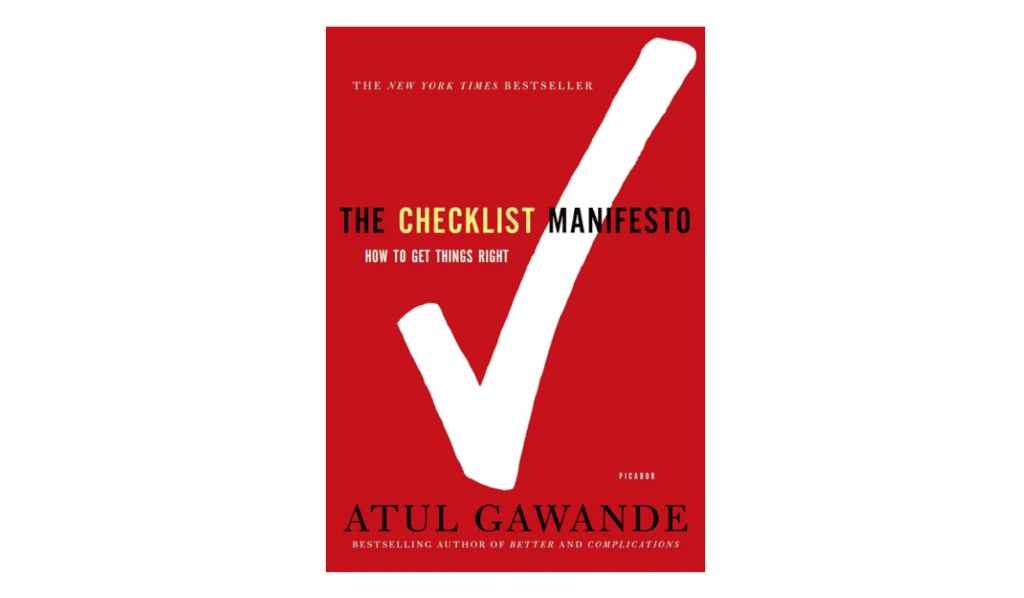
Summary:
The Checklist Manifesto illuminates how the simplest of ideas—a checklist—can resolve the complexity and fallibility in the medical field and beyond. Gawande articulates the power and necessity of organized task management in high-pressure environments, such as surgery, where precision and accuracy are paramount.
What You'll Learn:
The power and impact of checklists in improving outcomes and preventing errors, especially in high-stakes environments like medicine.
Why You Should Read It:
For an intriguing exploration of how a straightforward tool like a checklist or healthcare software can significantly minimize errors and complications in the healthcare field and other disciplines.
Quote From The Book:
"Under conditions of complexity, not only are checklists a help, they are required for success."
About The Author:
Atul Gawande is a renowned surgeon, writer, and public health researcher. Engage with him and stay updated through Twitter, or browse his personal website.
6. Language Of Kindness by Christie Watson
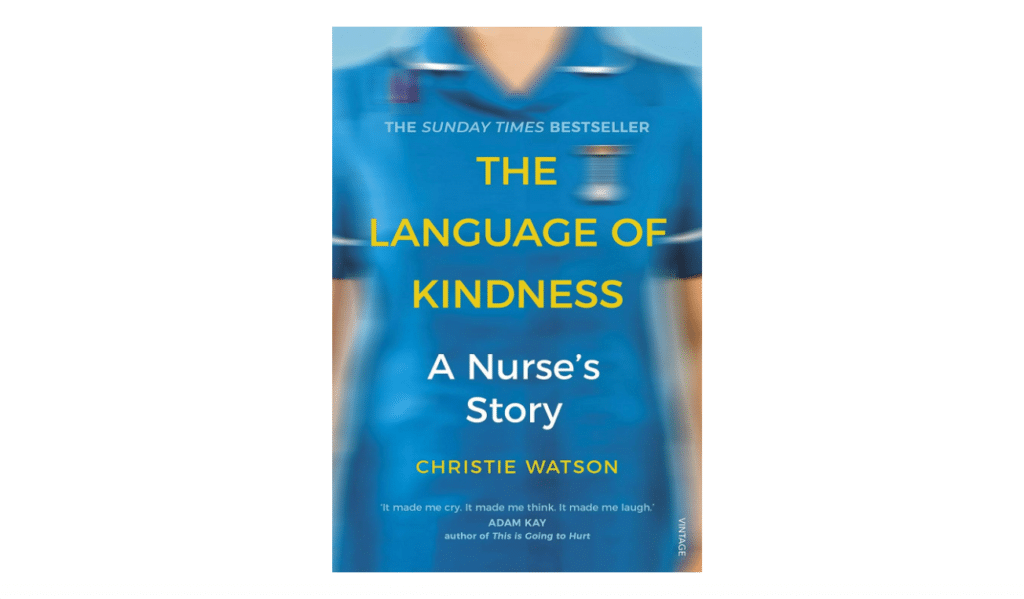
Summary:
Language Of Kindness offers a compelling journey through the world of nursing, as Christie Watson recounts her twenty years in the profession. From the rush of the emergency room to the demands of cancer wards, Watson provides a deeply personal and enlightening perspective on the challenges and triumphs faced by nurses.
What You'll Learn:
The profound impact nurses have on their patients' lives, the intricacies of the healthcare system, and the emotional rollercoaster that defines the life of a dedicated nurse.
Why You Should Read It:
To gain a profound appreciation for the unsung heroes of healthcare and to understand the vital role that kindness plays in the healing process.
Quote From The Book:
“Nursing is a career that demands a chunk of your soul on a daily basis. The emotional energy needed to care, really care, is colossal."
About The Author:
Christie Watson is an award-winning author and seasoned nurse. Explore more of her experiences and writings on her personal website.
7. When Breath Becomes Air by Paul Kalanithi, with a foreword by Abraham Verghese
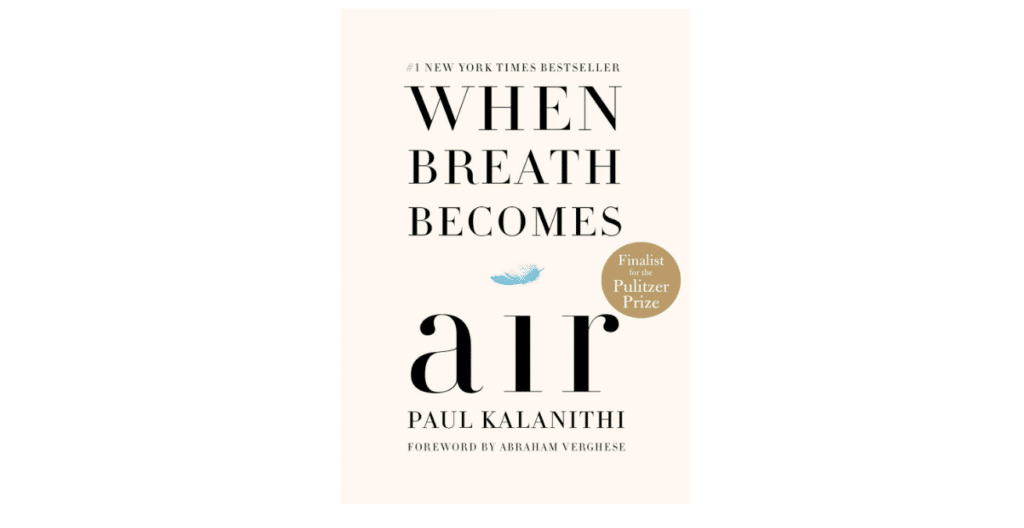
Summary:
In When Breath Becomes Air, neurosurgeon Paul Kalanithi provides a profoundly moving memoir about his life and his battle with stage IV lung cancer. The book confronts the challenging question of what makes life worth living in the face of death.
What You'll Learn:
A deep exploration of the nature of life, death, and the intertwined relationship between doctor and patient from the unique perspective of someone who has been both.
Why You Should Read It:
To gain a profound understanding of the fragility of life, the inevitability of death, and the pursuit of meaning amidst it all.
Quote From The Book:
"You can’t ever reach perfection, but you can believe in an asymptote toward which you are ceaselessly striving."
About The Author:
Paul Kalanithi was a talented neurosurgeon and writer. Though he's no longer with us, his legacy lives on through his writings and contributions to medicine.
8. Complications: A Surgeon's Notes on an Imperfect Science by Atul Gawande
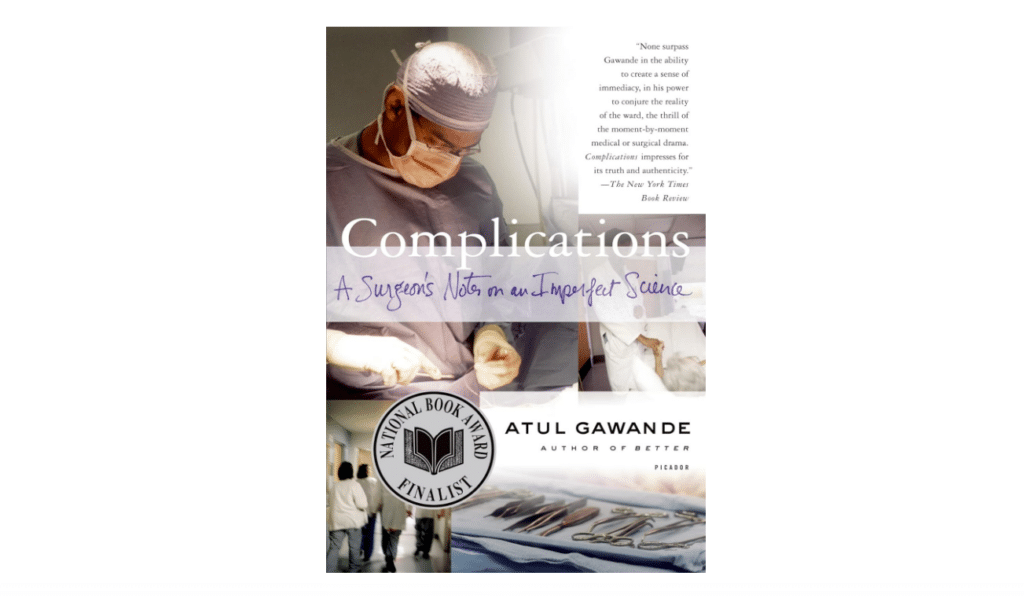
Summary:
Complications offer a revealing and candid look into the world of surgery, laying bare its challenges, imperfections, and the humanity of doctors. Gawande delves into the intricacies and complexities of the medical world, reflecting on the gray areas and the constant learning process.
What You'll Learn:
The imperfect nature of medicine and the delicate balance of art and science in the realm of surgical procedures.
Why You Should Read It:
To appreciate the nuances, challenges, and ethical dilemmas that surgeons face in their day-to-day practice, presented with honesty and clarity.
Quote From The Book:
"Good medicine, it turns out, is not just about the technical knowledge but also about understanding humans."
About The Author:
Atul Gawande is a noted surgeon, writer, and public health advocate. Engage with him and stay updated through Twitter, or visit his personal website.
9. The Spirit Catches You and You Fall Down by Anne Fadiman
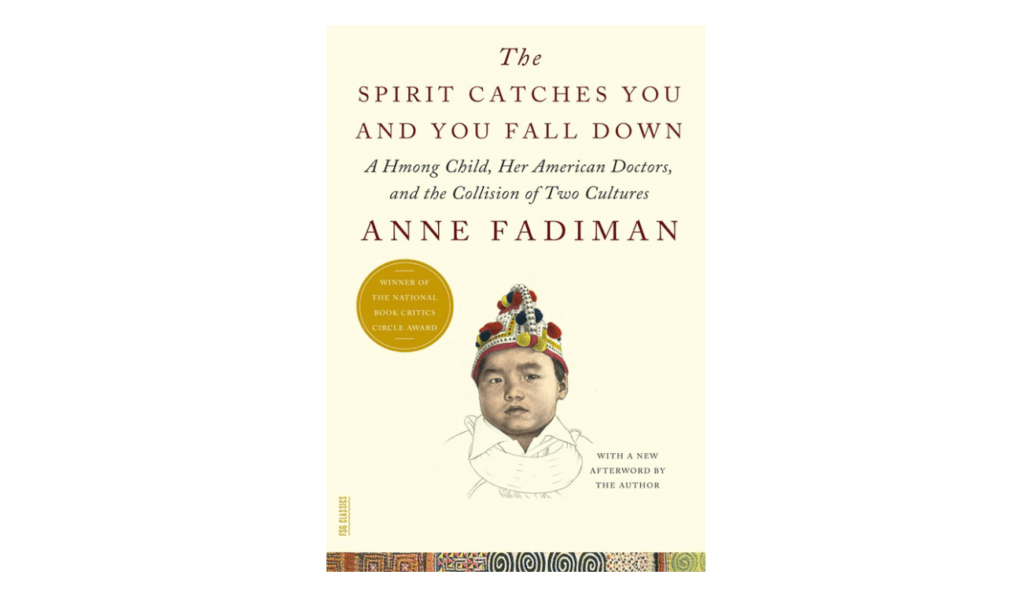
Summary:
This compelling book chronicles the struggles of a Hmong refugee family in California and their interactions with the American medical system when their daughter suffers from severe epilepsy. The narrative provides an intense cross-cultural examination, exploring the dichotomies of Western medicine and Hmong traditions.
What You'll Learn:
The profound impact of cultural beliefs on medical care, and the significant challenges and miscommunications that can arise between doctors and patients from different cultural backgrounds.
Why You Should Read It:
To understand the complexities of medical anthropology and the importance of cultural competence in healthcare settings.
Quote From The Book:
"Whenever I met her, I felt like a young tree that had been planted in too much shade."
About The Author:
Anne Fadiman is an acclaimed author and journalist with a focus on culture, literature, and medicine. Explore more about her works on her Amazon portfolio.
10. Mountains Beyond Mountains by Tracy Kidder
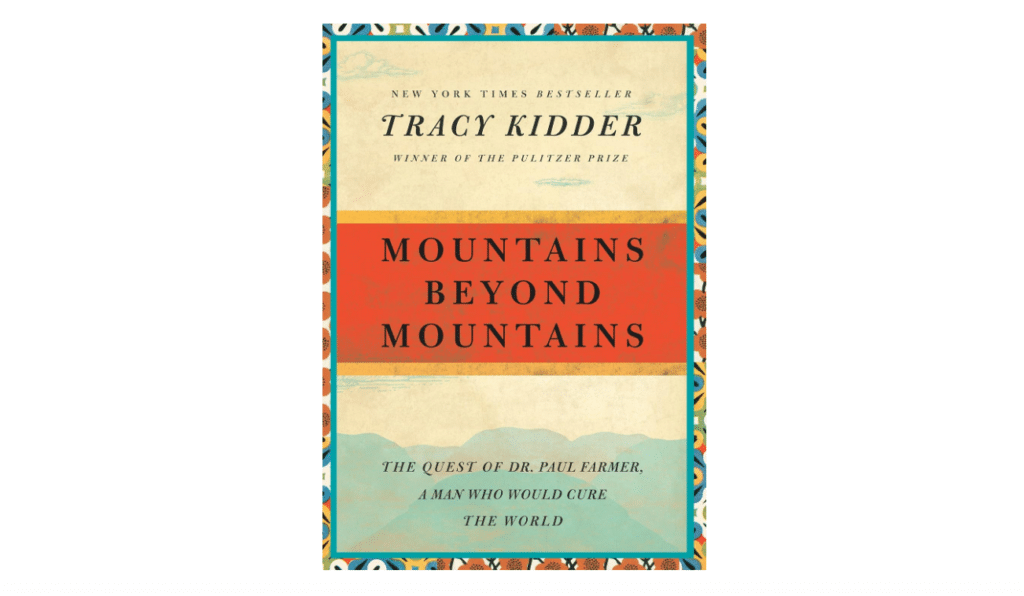
Summary:
This inspiring biography delves deep into the life and work of Dr. Paul Farmer, a man who dedicated his life to combating diseases in impoverished nations. Through this journey, Kidder provides readers with a window into global health battles and Farmer's relentless pursuit of healthcare equity.
What You'll Learn:
The intricacies of global health challenges and the inspiring endeavors of individuals and organizations striving to bring healthcare to the most marginalized.
Why You Should Read It:
To be inspired by Dr. Paul Farmer's dedication and to grasp the broader picture of global health disparities and the fight to rectify them.
Quote From The Book:
"For Farmer, only one strategy would do: whatever it takes."
About The Author:
Tracy Kidder is an award-winning author known for his compelling non-fiction narratives. Connect and follow him on Twitter.
11. How Doctors Think by Jerome Groopman
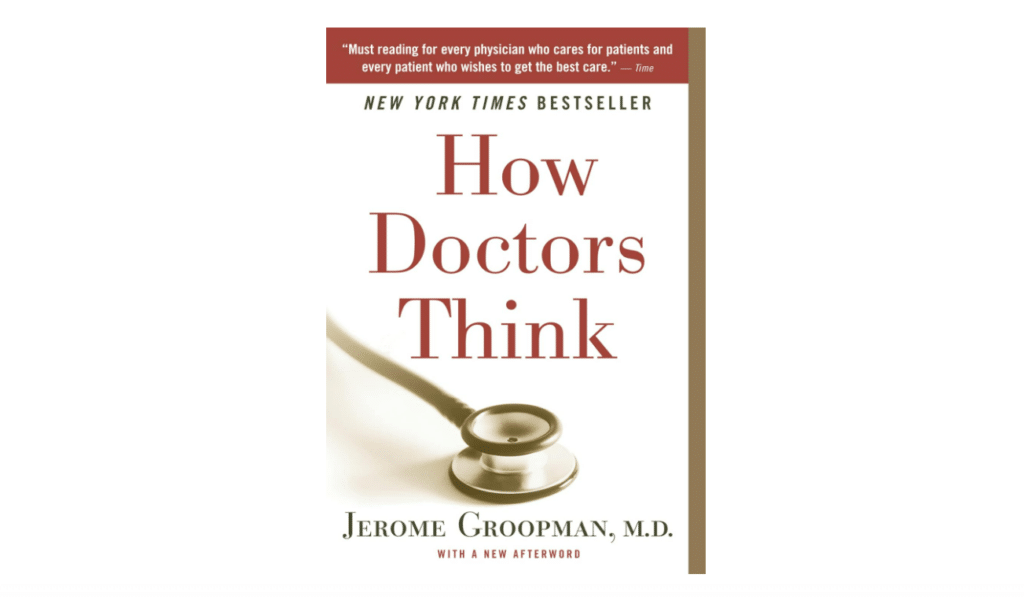
Summary:
How Doctors Think is an insightful exploration of the decision-making processes of physicians. Groopman delves into the complex cognitive mechanisms doctors utilize and highlights both the triumphs and pitfalls that emerge from their thinking patterns.
What You'll Learn:
The cognitive processes that underlie medical decision-making, and the various factors that can influence a doctor's diagnosis and treatment plans.
Why You Should Read It:
To understand the complexities and intricacies of medical judgments and to better navigate interactions with healthcare professionals.
Quote From The Book:
"Medicine's ground state is uncertainty. And wisdom - for both patients and doctors - is defined by how one copes with it."
About The Author:
Dr. Jerome Groopman is a prominent physician, researcher, and writer. Connect with him and discover more of his insights on his personal website.
12. The Digital Doctor by Robert Wachter
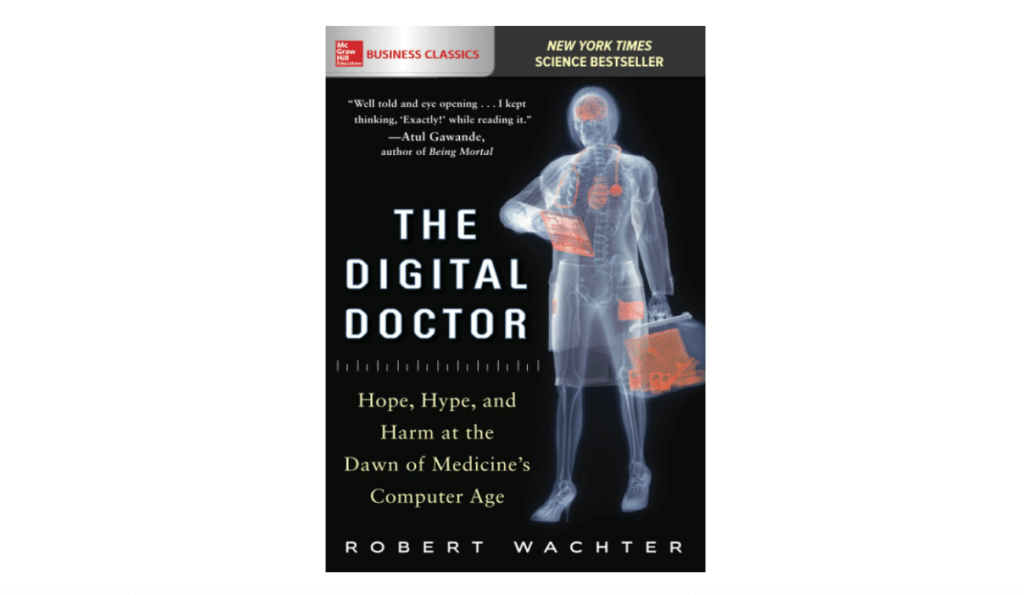
Summary:
The Digital Doctor offers a candid look into the world of modern medicine in the age of technology. Wachter assesses the promises, challenges, and unintended consequences of integrating technology into healthcare, offering a balanced perspective on its potential and pitfalls.
What You'll Learn:
The transformation of healthcare in the digital age, including the benefits, challenges, and unforeseen implications of electronic health records and health IT.
Why You Should Read It:
To gain a comprehensive understanding of the intersection of healthcare and technology and to be equipped with insights for navigating this evolving landscape.
Quote From The Book:
"Computers in healthcare: the promise still far exceeds the reality."
About The Author:
Dr. Robert Wachter is a recognized expert in the field of hospital medicine, patient safety, and healthcare quality. Engage with him on LinkedIn, follow him on Twitter, or explore his writings and more on his personal website.
13. Better: A Surgeon's Notes on Performance by Atul Gawande
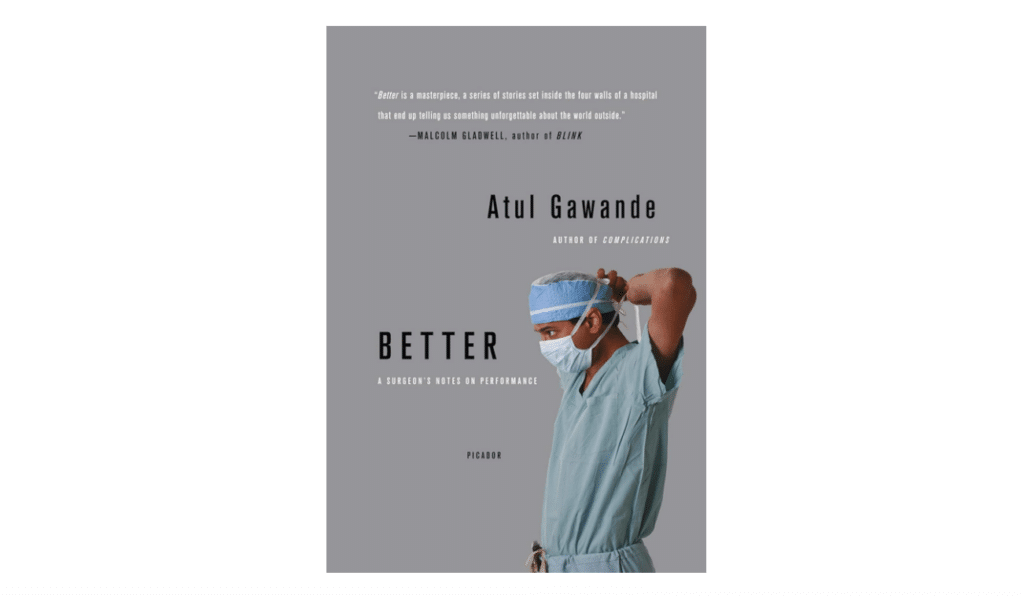
Summary:
In Better, Atul Gawande delves into the challenges faced by healthcare professionals in their relentless pursuit of perfection. Gawande presents a compelling narrative that highlights the combination of ingenuity, diligence, and moral clarity required in medicine.
What You'll Learn:
The various dimensions of excellence in healthcare, from hand washing to combatting malpractice and the ethical conundrums doctors navigate daily.
Why You Should Read It:
To gain insights into the complexities of the medical profession and understand the dedication required to continuously improve in the face of numerous challenges.
Quote From The Book:
"We always hope for the easy fix: the one simple change that will erase a problem in a stroke. But few things in life work this way."
About The Author:
Atul Gawande is a celebrated surgeon, author, and public health advocate. Discover more about his thoughts and contributions on Twitter, and his personal website.
14. The House of God by Samuel Shem, with an introduction by John Updike

Summary:
The House of God is a provocative, comedic, and at times, dark exploration of the life of a medical intern at a renowned hospital. This classic novel delves into the intense, challenging, and often absurd experiences of doctors-in-training.
What You'll Learn:
The harsh realities, ethical challenges, and interpersonal dynamics faced by medical interns are portrayed with humor and raw honesty.
Why You Should Read It:
To get a candid, behind-the-scenes look at the challenges and absurdities faced by young doctors as they navigate the tumultuous journey of medical training.
Quote From The Book:
"At a cardiac arrest, the first procedure is to take your own pulse."
About The Author:
Samuel Shem is the pen name for Stephen Bergman, a doctor, playwright, and author. Dive into his world and his works through his personal website.
15. In Shock: My Journey from Death to Recovery and the Redemptive Power of Hope by Rana Awdish
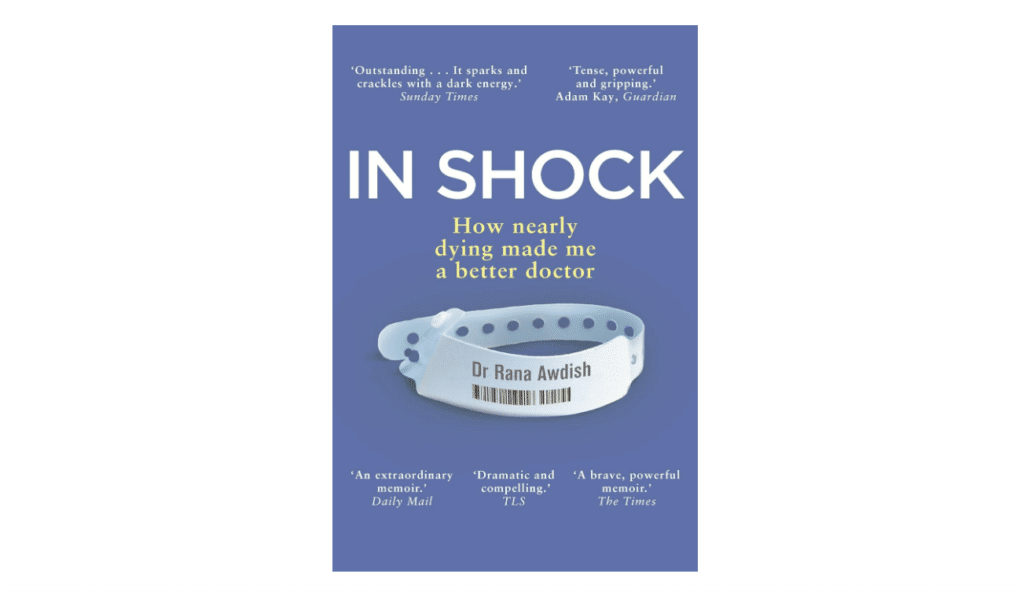
Summary:
In Shock chronicles Dr. Rana Awdish's personal journey from a near-fatal medical incident, through the labyrinth of healthcare as a critically ill patient, and her eventual recovery. This raw narrative sheds light on the flaws in healthcare from a patient's perspective and the profound need for empathy.
What You'll Learn:
The profound disparities between a patient's experiences and the clinical detachment often displayed by medical professionals, emphasize the transformative power of hope and connection.
Why You Should Read It:
To see the world of medicine from the other side of the bedrails and understand the profound impact of empathy and communication in the healing process.
Quote From The Book:
"In our rush to treatment, had we bypassed the essential human act of healing?"
About The Author:
Dr. Rana Awdish is an intensive care physician and advocate for improvements in patient care and communication. Connect with her insights on LinkedIn, follow her journey on Twitter, and delve deeper into her personal website.
16. God's Hotel: A Doctor, a Hospital, and a Pilgrimage to the Heart of Medicine by Victoria Sweet
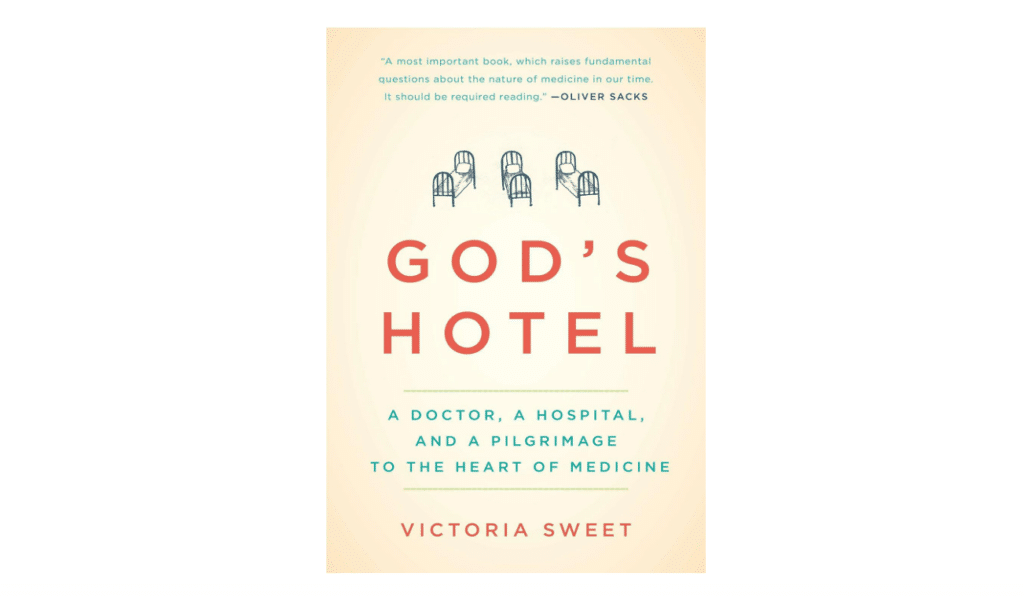
Summary:
God's Hotel provides an intricate look into the last almshouse in America, San Francisco's Laguna Honda Hospital. Dr. Victoria Sweet shares her experiences and observations, unveiling the complexities, challenges, and profound moments that arise in a place dedicated to caring for the most vulnerable.
What You'll Learn:
The historical significance of almshouses, the art of attentive medicine, and the importance of finding a balance between the old ways of healing and modern medicine.
Why You Should Read It:
To appreciate the deep connection between healthcare and humanity, and to understand the transformative power of slow medicine.
Quote From The Book:
“In our headlong rush for newer and better, we have lost much that was excellent.”
About The Author:
Victoria Sweet is a renowned physician, historian, and author. Discover more about her journey and contributions on her personal website.
17. The Anatomy of Hope by Jerome Groopman
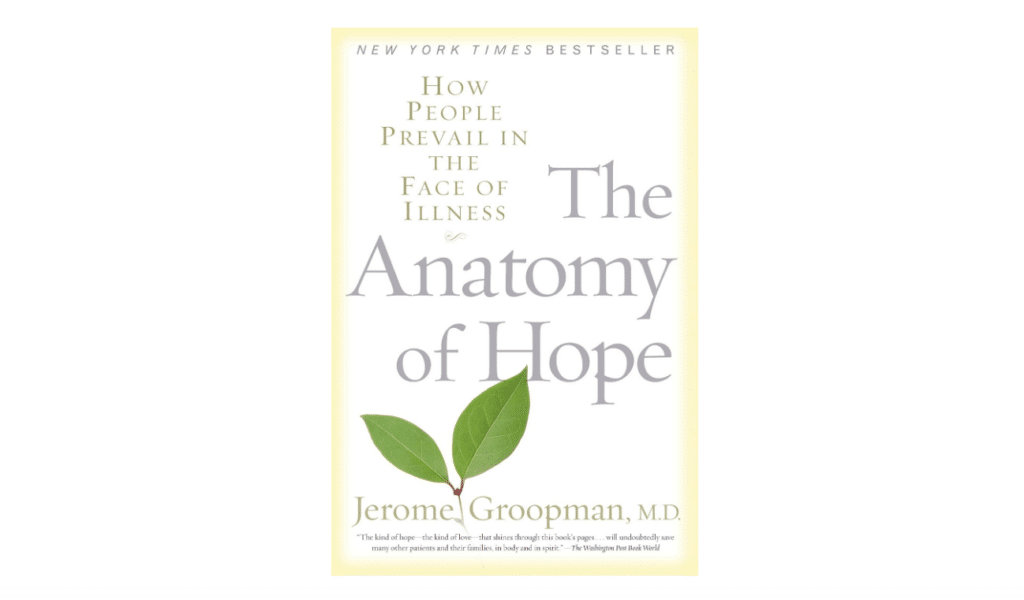
Summary:
In The Anatomy of Hope, Jerome Groopman delves deep into the power of hope in healing. Drawing from true stories of patients who faced grave illnesses, Groopman explores the profound impact that hope, or the lack of it, can have on recovery and well-being.
What You'll Learn:
The nuances of hope, its biological significance, and its essential role in the patient-doctor relationship and overall recovery.
Why You Should Read It:
To understand the intricate interplay of mind and body in the healing process, and to appreciate the transformative influence of genuine hope.
Quote From The Book:
“Hope is one of our central emotions, but we are often at a loss when asked to define it. Many of us confuse hope with optimism, a prevailing attitude that “things turn out for the best.” But hope differs from optimism.”
About The Author:
Dr. Jerome Groopman is a distinguished clinician, researcher, and writer. Dive deeper into his works and thoughts on Twitter, and his personal website.
18. Cutting for Stone by Abraham Verghese
Summary:
"Cutting for Stone" unfolds the emotionally charged journey of twin brothers, born of a forbidden union in Ethiopia. Their shared destiny takes them on paths of pain, love, betrayal, and redemption, with medicine serving as the backdrop. Spanning continents and decades, the novel paints a vivid tapestry of human experience, bound by shared heritage and an unbreakable bond.
What You'll Learn:
Delve into the intricacies of family, love, and sacrifice, all set within the complex world of medicine. Through the twins’ eyes, witness the challenges of practicing medicine in resource-limited settings and the ethical dilemmas that often arise.
Why You Should Read It:
This is more than just books for healthcare workers; it's a tale of the human spirit, resilience, and the invisible threads that bind us to the past and to each other. The book’s rich narrative and intricate characters make it a captivating read, offering both heartbreak and hope in equal measure.
Quote From The Book:
“We are all fixing what is broken. It is the task of a lifetime. We'll leave much unfinished for the next generation.”
About The Author:
Abraham Verghese is a celebrated physician, professor, and author. His writing is deeply influenced by his experiences as a doctor, infusing his narratives with authenticity and profound human insight.
19. Medical Apartheid by Harriet A. Washington
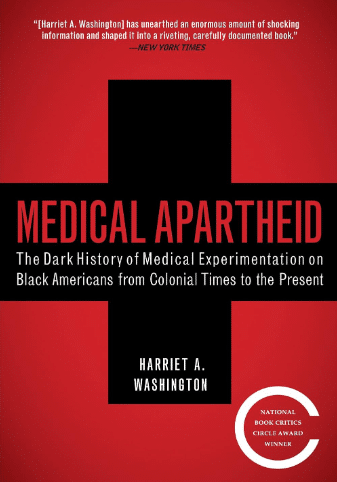
Summary:
"Medical Apartheid" is a groundbreaking exploration of the long, troubling history of unethical medical experimentation on Black Americans, from the days of slavery to more recent times. Washington painstakingly uncovers the deep-rooted racial prejudices in American medicine, shedding light on shocking and hidden chapters of medical history.
What You'll Learn:
Discover the myriad ways Black Americans have been used unwittingly for medical experimentation and the impact of deeply entrenched racial biases on medical protocols and practices. Washington's research delves into a range of unethical practices – from grave robbing to forced sterilizations.
Why You Should Read It:
Washington’s meticulously researched narrative is a vital read for understanding the systemic racial biases in American medical history. It provides a foundation for informed discourse on current healthcare disparities and illuminates the long shadow of racism in medicine.
Quote From The Book:
"There are two means of refuge from the miseries of life: music and cats."
About The Author:
Harriet A. Washington is an award-winning medical writer and editor, renowned for her expertise in ethical issues in medicine and science. Connect with her on LinkedIn.
20. The Man Who Mistook His Wife for a Hat by Oliver Sacks
Summary:
In this fascinating collection of clinical tales, renowned neurologist Oliver Sacks delves into the world of neurological disorders, offering readers a profound look into the complexities of the human brain. Each story is a unique testament to the resilience, adaptability, and profound strangeness of the human mind.
What You'll Learn:
Journey into the depths of the human psyche as Sacks examines real-life patients with rare neurological disorders. From the man who truly mistook his wife for a hat to individuals with striking memory anomalies, you'll explore the incredible manifestations and mysteries of the brain.
Why You Should Read It:
Sacks’ compassionate storytelling illuminates the human side of neurology, emphasizing the experiences, emotions, and challenges faced by his patients. This book not only deepens one's understanding of neurological disorders but also celebrates the indomitable spirit of those who live with them.
Quote From The Book:
"To live day-to-day isn't enough for us; we crave meaning, understanding, and hope for the future. We seek freedom, whether tangible or in our mindset, to explore beyond our immediate world. We yearn for connections, awareness of time, and an appreciation of life's beauty."
About The Author:
Oliver Sacks was a British neurologist, naturalist, and author who spent his professional life in the United States.
21. Critical Care by Theresa Brown
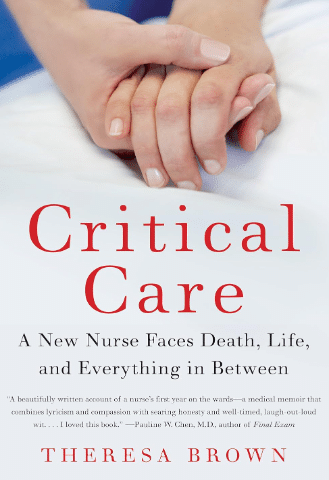
Summary:
"Critical Care" is Theresa Brown's candid account of her journey from being an English professor to a registered nurse working in oncology, navigating the complex and intense world of hospital care. In this memoir, Brown provides a firsthand look into the life of a nurse, detailing the challenges, joys, heartbreaks, and incredibly human moments that come with the territory.
What You'll Learn:
Readers will gain insight into the realities of patient care from a nurse's perspective, exploring the emotional and physical demands of the job. From handling life-and-death situations to forming deep connections with patients, the book provides a raw look at the profession's challenges and rewards.
Why You Should Read It:
For anyone contemplating a career in nursing, or simply curious about what it's truly like behind the scenes in a hospital setting, this book is an enlightening read. Brown's narrative bridges the gap between the clinical and the deeply personal, illuminating the profound relationships and experiences that shape a nurse's world.
Quote From The Book:
"In the world of nursing, as in that of medicine, we often see people on their worst day ever. In the face of such need, to offer any help at all is a privilege."
About The Author:
Theresa Brown is not only a registered nurse but also a celebrated columnist and advocate for the nursing profession. Through her writings, she aims to highlight the challenges faced by healthcare professionals and advocates for better conditions and patient care.
22. Direct Red: A Surgeon’s View of Her Life-or-Death Profession by Gabriel Weston

Summary:
"Direct Red" offers an intimate portrayal of the highs and lows experienced by Gabriel Weston as she navigated the demanding world of surgery. Weston provides a candid account of her journey, detailing the life-altering decisions, intense pressure, and the emotional toll of her profession, all while offering an illuminating look into the often hidden corners of hospital life.
What You'll Learn:
Dive into the intricate world of surgery through the eyes of a dedicated professional. Readers will gain a deep understanding of the challenges surgeons face, the moral and ethical dilemmas, the moments of doubt and conviction, and the deep sense of responsibility that comes with holding a patient's life in one's hands.
Why You Should Read It:
Weston's memoir is more than just a recounting of medical procedures. It is a deeply personal exploration of what it means to be a surgeon, the human side of medicine, and the resilience required to navigate such a taxing profession. It provides readers with a unique opportunity to see beyond the surgical mask and into the heart and mind of a surgeon.
Quote From The Book:
"Surgery is the one branch of medicine that is completely, unambiguously effective. If someone's got an appendix full of pus, you whip it out; if someone's got cancer, you cut it out. You actually do something."
About The Author:
Gabriel Weston is not only an accomplished surgeon but also a gifted writer. With her literary talents, she provides an inside look into the world of medicine, revealing the challenges and joys of her profession.
23. Why We Revolt by Victor Montori
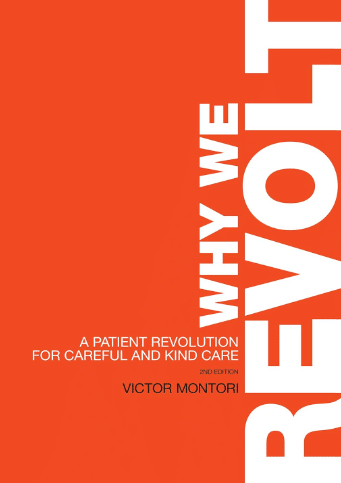
Summary:
"Why We Revolt" is a powerful call to arms, urging for a complete reimagining of patient care. Dr. Victor Montori makes a compelling case for a healthcare revolution, emphasizing the importance of patient-centric care. He critiques the existing system, pinpointing where it has gone wrong, and offers a vision for a future where care is more thoughtful, kind, and tailored to individual needs.
What You'll Learn:
Delve into the intricacies of the modern healthcare system and its inherent flaws. Discover the value of patient-centered care, the dangers of industrialized medicine, and the need for a more compassionate approach. Montori paints a vision of how healthcare can be restructured, ensuring that it prioritizes patients over profits.
Why You Should Read It:
Montori's passionate plea is a necessary read for anyone involved in or affected by the healthcare system. His firsthand experiences and insights offer a fresh perspective on the current state of healthcare and shine a light on the path forward. It's a rallying cry for better, more humanistic care.
Quote From The Book:
"Care has been industrialized, turned from a calling into a delivery system, and patients have become 'consumers' of health care services. But the practice of medicine is not a transaction; it is an encounter between two human beings."
About The Author:
Victor Montori is a passionate advocate for patient-centered care. As a practicing physician and academic, he has witnessed the challenges of the current healthcare system firsthand. Engage with his revolutionary ideas and thoughts on healthcare reform by following him on LinkedIn.
24. Preventable: How a Pandemic Changed the World & How to Stop the Next One by Devi Sridhar
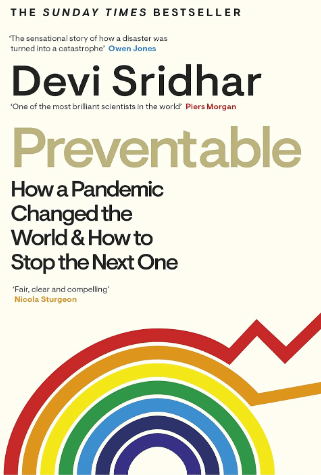
Summary:
In "Preventable," Devi Sridhar delves deep into the global response to the COVID-19 pandemic. Sridhar presents a detailed analysis of how different countries managed the crisis, the lessons learned, and what can be done to prevent future pandemics. The book offers an expert's perspective on global health governance and the systemic failures that exacerbated the pandemic's impact.
What You'll Learn:
An in-depth exploration of the global response to COVID-19. Case studies of how various countries managed the pandemic. Insight into global health governance and its challenges. Recommendations for preventing and managing future pandemics.
Why You Should Read It:
This book offers a comprehensive analysis of the global response to a once-in-a-century health crisis. Sridhar's expert perspective illuminates the systemic issues that hinder effective response and provides actionable recommendations for future challenges. It's an essential read for anyone interested in global health, policy-making, and crisis management.
Quote From The Book:
"Global health response flaws during the COVID-19 pandemic. Through analysis of policy and timely interventions, strong public health systems, and worldwide collaboration to avert future crises."
About The Author:
Devi Sridhar is a professor and Chair of Global Public Health at the University of Edinburgh. She has been at the forefront of research and policy advice during the COVID-19 pandemic. Her expertise lies
Which Books for Healthcare Workers Do You Recommend?
I value your insights and experiences. If there are books that have deeply resonated with you and aren't on this list, please share. Your recommendations can enrich our collective knowledge.

